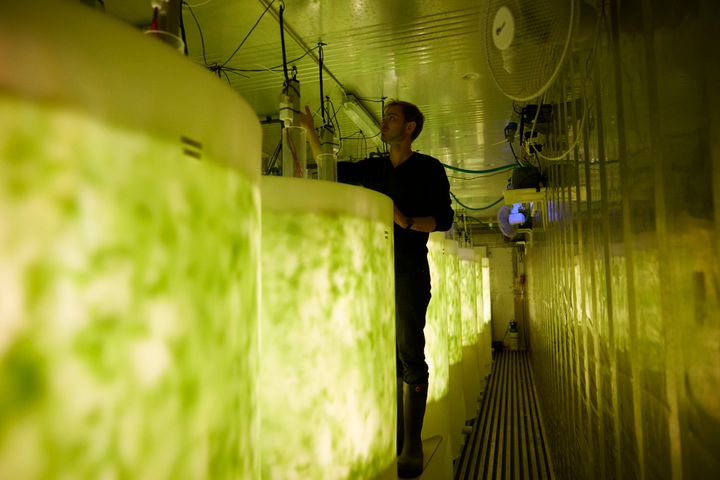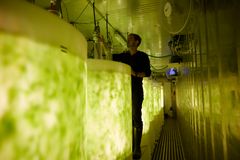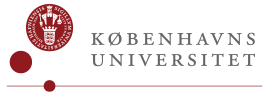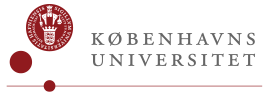Danish innovation to convert nutrients and CO2 from shrimp and fish farming into seaweed

Together with Aarhus University and a range of companies, researchers from the University of Copenhagen will develop the sustainable co-production of fish, shrimp and seaweed.
Over the next four years, they will work to further develop a closed, sustainable cycle on land that utilizes residual nutrients and CO2 from shrimp and fish farming to grow high-value seaweed for the food and healthcare industries. The project is called SeaFree.
"The project aims to use seaweed production to absorb and convert emissions from land-based aquaculture into a high-value product. Among other things, the seaweed will be used for dietary supplements that can prevent diabetes and sustainable foodstuffs innovations. In addition to capturing emissions that would have otherwise been emitted into the atmosphere and aquatic environment, the seaweed produced is both healthy and rich in umami flavour," says Professor Marianne Thomsen from the Department of Food Science at the University of Copenhagen.
A single 40-foot container makes seaweed in a week
The project, funded by Innovation Fund Denmark with DKK 14.4 million (€1.9m), is being carried out in a collaboration among the companies Pure Algae, DryingMate, Food Diagnostics, Sigrid Therapeutics, XOventure GmbH/Rigi Care, KOST, SOF Odden Caviar and HanseGarnelen.
The project’s starting point is a 40ft container setup equipped with eight one-thousand-liter tanks. The container solution is a so-called Plug’n’Play technology with great export potential. By combining salt water, CO2 and nutrients with LED lights, the unit can produce a full batch of seaweed in just one week, resulting in an extremely short harvest period.
"SeaFree represents the latest in recycling technology for land-based shrimp and fish farming. Besides capturing emissions, the system also recirculates surplus heat from the plants to the Plug'n'Play technology. The project includes the development of a new technology that makes it possible to use surplus heat to dry the seaweed which is then sold to the healthcare industry. In this way, SeaFree contributes to a more sustainable and efficient production process," says Marianne Thomsen.
A potential export venture
The final product consists of climate-friendly fish, shrimp and sea lettuce – a healthy, fiber and protein-rich seaweed species. In addition to the production of various dietary supplements, sea lettuce is also used as an edible accompaniment when people buy seafood.
"Part of the project is also about developing recipes that increase awareness of seaweed as an ingredient for delicious home-cooked meals," says Professor Marianne Thomsen.
According to Thomsen, there is huge potential in farming fish and seaweed in the manner envisioned by SeaFree. If all of the world's land-based shrimp and fish farms implemented the method, it could significantly reduce the CO2 footprint of global food systems.
As such, the combination of aquaculture and seaweed cultivation in closed systems may well develop into a new Danish export market.
"On a global level, it will be possible to implement the technology, marketed as "SeaFree Synergy Solutions", anywhere in the world. As for the technology’s environmental benefits, they are unequivocal. "We are already in contact with South Korea, which is very interested in the technology and the project’s development," she concludes.
Contacts
Marianne Thomsen
Professor
Department of Food Science
University of Copenhagen
Mobile: + 45 22 29 26 27
mth@food.ku.dk
Michael Skov Jensen
Journalist and team coordinator
The Faculty of Science
University of Copenhagen
Mobile: +45 93 56 58 97
msj@science.ku.dk
Images

About Københavns Universitet - Det Natur- og Biovidenskabelige Fakultet
 Københavns Universitet - Det Natur- og Biovidenskabelige Fakultet
Københavns Universitet - Det Natur- og Biovidenskabelige FakultetBülowsvej 17
1870 Frederiksberg C
35 33 28 28https://science.ku.dk/
Det Natur- og Biovidenskabelige Fakultet på Københavns Universitet – SCIENCE – er landets største naturvidenskabelige forsknings- og uddannelsesinstitution.
Fakultetets væsentligste opgave er at bidrage til løsning af de store udfordringer, som vi står overfor i en verden under hastig forandring med øget pres på bl.a. naturressourcer og markante klimaforandringer - både nationalt og globalt.
Subscribe to releases from Københavns Universitet - Det Natur- og Biovidenskabelige Fakultet
Subscribe to all the latest releases from Københavns Universitet - Det Natur- og Biovidenskabelige Fakultet by registering your e-mail address below. You can unsubscribe at any time.
Latest releases from Københavns Universitet - Det Natur- og Biovidenskabelige Fakultet
Saving the Asian Unicorn – If It Still Exists6.5.2025 09:48:24 CEST | Press release
The saola, an antelope-like bovine, is one of the world’s rarest and most endangered mammals. In fact, it hasn’t been observed in over 10 years. Researchers from the University of Copenhagen, in collaboration with Vietnamese scientists and an international team of researchers, have for the first time mapped the saola’s complete genome, and they have used that knowledge to estimate the chances of saving it – if it still exists.
Sådan redder vi den asiatiske enhjørning – hvis den altså findes6.5.2025 07:07:00 CEST | Pressemeddelelse
Den antilopeagtige okse, saolaen, er et af verdens mest sjældne og mest truede pattedyr – faktisk er den ikke blevet set i over 10 år. Forskere fra Københavns Universitet har i samarbejde med vietnamesiske forskere som de første kortlagt saolaens gener, og den viden har de brugt til at beregne sandsynligheden for, at vi kan nå at redde den – hvis den altså stadig findes.
Saving the Asian Unicorn – If It Still Exists5.5.2025 17:00:00 CEST | Press release
The saola, an antelope-like bovine, is one of the world’s rarest and most endangered mammals. In fact, it hasn’t been observed in over 10 years. Researchers from the University of Copenhagen, in collaboration with Vietnamese scientists and an international team of researchers, have for the first time mapped the saola’s complete genome, and they have used that knowledge to estimate the chances of saving it – if it still exists.
Bakterier bruger gammelt krigstrick til at overliste vira: Kan hjælpe med at bekæmpe ’superbugs’30.4.2025 07:30:00 CEST | Pressemeddelelse
Forskere har opdaget en ny type immunforsvar i coli-bakterier, der vender en virusinfektion mod vira selv. Systemet er opkaldt efter den kinesiske militærstrateg Kongming som var berømt for at bruge fjendens våben til at besejre dem. Opdagelsen kan bruges i udviklingen af fremtidige bioteknologiske værktøjer og måske som et alternativ til antibiotika til at bekæmpe multiresistente bakterier.
Nyt forskeruddannelsesprogram skal udklække fremtidens kvantespecialister29.4.2025 10:24:11 CEST | Pressemeddelelse
Med støtte fra Villum Fonden opretter Københavns Universitet og DTU et nyt forskeruddannelsesprogram, der skal være med til at sikre, at Danmark kan bevare sin styrkeposition inden for kvanteforskning i fremtiden.
In our pressroom you can read all our latest releases, find our press contacts, images, documents and other relevant information about us.
Visit our pressroom